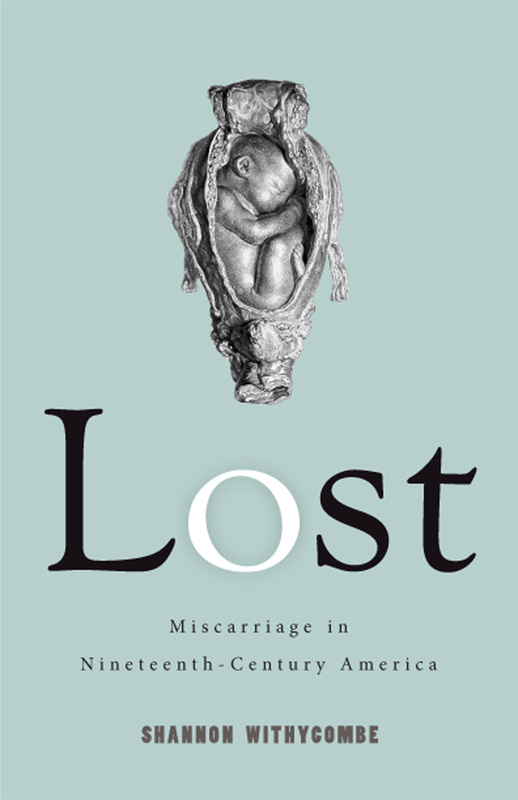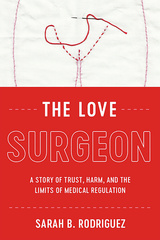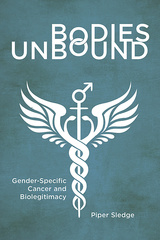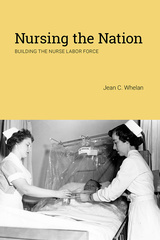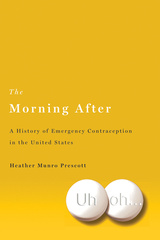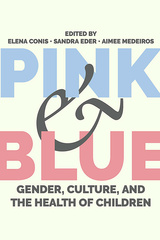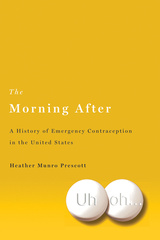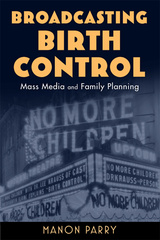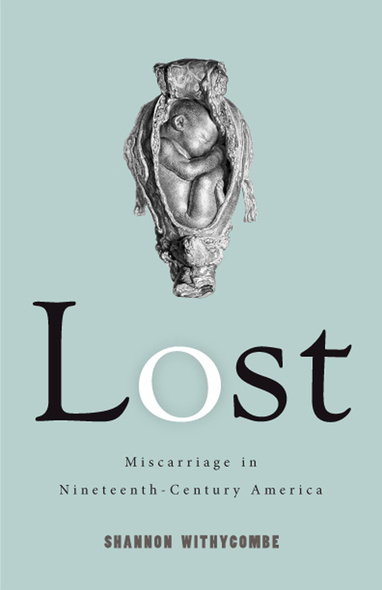
236 pages, 5 1/2 x 8 1/2
9 images, half tones
Paperback
Release Date:05 Oct 2018
ISBN:9780813591537
Hardcover
Release Date:05 Oct 2018
ISBN:9780813591544
Lost
Miscarriage in Nineteenth-Century America
Rutgers University Press
2019 Choice Outstanding Academic Title
In Lost, medical historian Shannon Withycombe weaves together women’s personal writings and doctors’ publications from the 1820s through the 1910s to investigate the transformative changes in how Americans conceptualized pregnancy, understood miscarriage, and interpreted fetal tissue over the course of the nineteenth century. Withycombe’s pathbreaking research reveals how Americans construed, and continue to understand, miscarriage within a context of reproductive desires, expectations, and abilities. This is the first book to utilize women’s own writings about miscarriage to explore the individual understandings of pregnancy loss and the multiple social and medical forces that helped to shape those perceptions. What emerges from Withycombe’s work is unlike most medicalization narratives.
In Lost, medical historian Shannon Withycombe weaves together women’s personal writings and doctors’ publications from the 1820s through the 1910s to investigate the transformative changes in how Americans conceptualized pregnancy, understood miscarriage, and interpreted fetal tissue over the course of the nineteenth century. Withycombe’s pathbreaking research reveals how Americans construed, and continue to understand, miscarriage within a context of reproductive desires, expectations, and abilities. This is the first book to utilize women’s own writings about miscarriage to explore the individual understandings of pregnancy loss and the multiple social and medical forces that helped to shape those perceptions. What emerges from Withycombe’s work is unlike most medicalization narratives.
Lost is a delight to read. Withycombe provides smart readings of vivid and compelling stories, which she shares in graceful detail. Lost is well-researched, insightful, and compelling.’
Shannon Withycombe has found wonderful, intimate stories about 19th-century women’s pregnancies and the end of their pregnancies that can only be found through difficult, painstaking research in personal papers as well as the scientific and clinical thinking of physicians about miscarriage found in medical publications and hospital records. This is a unique book that brings together questions from both the history of science and the history of medicine and from the perspectives of both patients and practitioners.'
This amazing book analyzes how women and physicians understood miscarriage in the 19th century, a time without early pregnancy tests, ultrasounds, or legal reproductive control. Withycombe spent years sifting through archives searching for women’s conversations about pregnancy loss to gain an understanding of how women felt about their miscarriages. Lost is an important and timely book.
[Lost] shows the remarkable contrast between 19th-century women’s views of miscarriage and the loss-focused rhetoric of today.
Chronicle of Higher Education 'new scholarly books' weekly book list,' compiled by Nina C. Ayoub
Throughout Lost, Withycombe outlines a comprehensive yet incredibly accessible history about the shift in the narrative. She provides detailed accounts from the letters of women, includes excerpts from medical journals, and uses the larger historical context to situate this ongoing negotiation between women and doctors to dictate the terms of what pregnancy was and wasn’t.
Highly recommended.
Extensively researched and compellingly written, Lost is an excellent history of miscarriage in the nineteenth century, and its contribution to medical history goes beyond its immediate subject matter. Connecting the history of miscarriage to broader history of childbirth and motherhood, on the one hand, and to developments in the history of obstetrics gynecology, and medical research, on the other, Withycombe has written an important and timely book that will be of interest to historians of medicine and practitioners alike.
Extensively researched and compellingly written, Lost is an excellent history of miscarriage in the nineteenth century, and its contribution to medical history goes beyond its immediate subject matter. Connecting the history of miscarriage to broader history of childbirth and motherhood, on the one hand, and to developments in the history of obstetrics gynecology, and medical research, on the other, Withycombe has written an important and timely book that will be of interest to historians of medicine and practitioners alike.
Lost gives us something different and long absent from the historiography: a historical account of miscarriage constructed from women’s own personal narratives. To do so is no easy endeavor: locating references to miscarriage and pregnancy loss in the archival record requires profound dedication, patience, and skill. We should all be glad Withycombe embodies these qualities in spades, as her study provides us with novel understandings of nineteenth-century pregnancy and miscarriage from the perspective of the women who lived through these experiences. Lost provides a needed reminder that women’s lived experiences transcend the polemics of law, culture, and medicine, though they are indeed influenced by them.
Withycombe’s book adds an important new piece to the history of medicine and childbearing, and her book could be an excellent teaching tool for undergraduate or graduate courses in the history of women, gender, and medicine.
SHANNON WITHYCOMBE is an assistant professor of history at the University of New Mexico in Albuquerque.
Introduction 1
1. Oh Joy, Oh Rapture: Describing the Nineteenth-Century Miscarriage 13
2. Enveloped in Mystery: Pregnancy and Miscarriage in the Late Eighteenth and Early Nineteenth Centuries 42
3. Before Its Due Time: Setting Standards in Miscarriage, 1830–1860s 59
4. Dr. Taylor Went Up in the Uterus: Miscarriage Treatment and Intrusive Interventions, 1860–1900 93
5. The Body in the Clot: Medical Interest in Miscarried Tissues, 1870–1912 125
Conclusion 162
Acknowledgments 173
Notes 177
Index
1. Oh Joy, Oh Rapture: Describing the Nineteenth-Century Miscarriage 13
2. Enveloped in Mystery: Pregnancy and Miscarriage in the Late Eighteenth and Early Nineteenth Centuries 42
3. Before Its Due Time: Setting Standards in Miscarriage, 1830–1860s 59
4. Dr. Taylor Went Up in the Uterus: Miscarriage Treatment and Intrusive Interventions, 1860–1900 93
5. The Body in the Clot: Medical Interest in Miscarried Tissues, 1870–1912 125
Conclusion 162
Acknowledgments 173
Notes 177
Index

